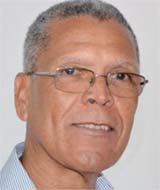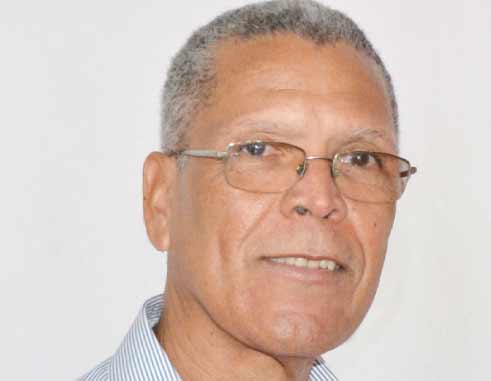
On Wednesday next week we will celebrate Independence Day, but we should not continue to fool ourselves. What we are doing is having a holiday and giving ourselves some reason to have a so-called good time, as we have very little to celebrate. Some of us will go to the church services, some to the ceremonies and state cocktail parties and dinners, while the rest of us will simply go to the beach.
But throughout our official celebrations, not a word will be spoken of what this day is supposed to mean, or what it is supposed to signify. It is almost as if this idea of our independence is something of which we are too afraid, too disturbing, too upsetting to be spoken of in polite company.
So we raise our glasses on the day, filled with either champagne or white rum, and instead we “wine”. It might be unfortunate that our date for carnival has been shifted from February thereby avoiding the potential clash with Independence Day, but at least with carnival at that time we had an acknowledged opportunity then for drowning our sorrows. Now, we are simply encouraged to ignore them.
We won’t ignore them. The price of ignorance is too high. We are not going to lose our souls, and we are not going to turn our backs on the legacy of those who have gone before us. Because we are the descendants of a people who established a haven in the rocky terrain at the foot of Gros Piton, a village which they called Fond Gens Libre, (Valley of the Free (Slaves)), and survived there. And because we have benefited from the strength of the pre-independence leaders of our region, and from the vision and leadership of one whose recent passing is still cause for much anguish.
And while we mourn the death of Sir Dwight, we must also give support to VOICE columnist Earl Bousquet’s call for the replacement of the image of the Queen on our currency with that of Sir Dwight’s. No one in the United Kingdom expects us to pay daily recognition to the Queen, and they must see no disrespect in the removal of her image from our currency. It has little value to any of us in the region, and most of us will now have to check our notes to confirm that the image of the Queen is actually on them.
But replacing the image of the Queen on our currency with his will not simply be an honour to Sir Dwight. It will be an honour for all of us in this region as we give recognition to the contribution of one of the pillars of our society, and it will instill pride in ourselves that we can openly acknowledge his value to us. We need not stop there, as if somehow we manage to maintain Sir Dwight’s legacy and the OECS union continues to strengthen and to grow, then maybe we can erect a statue of him at the new headquarters of the OECS wherever and whenever it is to be built. But that is for the future. Sir Dwight’s image replacing that of the Queen on our currency is a tribute that must be paid today.
And as we continue to reflect on his passing, it is also true that not many of us were aware of Sir Dwight’s actual contribution to the Central Bank and to the region during the 26 years of his tenure as Governor of the Bank, except that the outpouring of gratitude expressed by the region at his death confirmed that it was monumental. For most of us, all we really knew was that we had Sir Dwight there, and that he was on our side. He would take care of things for us, and so we didn’t have to worry, at least not about our currency. He had earned our trust, and he inspired our confidence not only in himself, but also in our own selves, and in our region.
And now that he’s gone and left us, what are we to do? We will mourn, and then reflect, and then we will pick ourselves up and do that which Sir Dwight would have expected of us – re-commit ourselves to the unity of our region, and to its development as a region. Now, more than ever, that resurrection of our spirit must be geared not only to the making of speeches and signing of declarations and agreements, but we must demand of our governments that they pay attention to the regional cause.
As a people, we will honour Sir Dwight’s legacy, and we can start by re-visiting the address by Sir Dwight entitled “Realism and Hope” which the editorial of this newspaper brought to our attention on January 7 of this year. That without that editorial’s reference to his address the advice given by Sir Dwight would have been lost to most of us is a symptom of our problem, and an indictment of the governments which we have serving us today. Revised Treaty of Basseterre? What is that, and what has that got to do with us, never mind that it is less than seven years old? That it establishes something called an economic union means even less to us, as all we know about that is that we have something called an EC Dollar, which is stable, and strong.
And so, in echoing the call of the VOICE editorial that we now take a serious look at Sir Dwight’s advice to us, and in the interest of holding a flame to the collective seat of the pants of our governments so that they may be encouraged to pay more serious attention to Sir Dwight’s advice, we make one more request. And it is that in addition to placing his image on our currency replacing that of the Queen, and in addition to erecting a statue of him at a new OECS headquarters building, that the OECS Secretariat itself, possibly in collaboration with the University of the West Indies, establishes something in the nature of a Dwight Venner Lecture Hour. For if nothing else, Sir Dwight was an educator, and a means must now be instituted for that wealth of advice which he has given us to be communicated to the man in the street, to our young people, and to our children at school.
It would seem that a continued discussion of Sir Dwight’s advice will be an essential component of our political and economic survival, as in that referenced address, “Realism and Hope”, he makes the point that “… because we have competitive multiparty political systems, tremendous pressures are put on those systems to deliver public goods and services which are beyond the capabilities of our economic systems”. He adds that “We therefore need to honestly, objectively and realistically assess our current situation and the structure and functions of the political, social and economic systems within which we have to operate”.
Any honest assessment of ourselves will recognize that we cannot continue with the political culture that currently exists if we are to pay any attention to Sir Dwight’s advice. And it will not help for those who benefit from that culture and may wish to perpetuate it to point to the politics of the developed world in an attempt to justify our behaviour. The developed countries may be able to afford their lapses; we can’t.
And while the task of changing our politics and re-orienting ourselves may be a massive one, Sir Dwight’s message was one of “Realism and Hope”. Even with a realistic assessment of our current circumstances, he offered us “Hope”. We must grab hold of that offer and cling to it, as in delivering that address in January 2013 Sir Dwight pointed to where we might be in the next fifteen years. Here is a link to the address: eccb-centralbank.org/PDF/ereview_2012.pdf
Four years have gone by and little has happened. If nothing, the state of our union may be in worse shape today than at the time of Sir Dwight’s address. But maybe, just maybe, if we start an education campaign today, we might begin to see the realisation of the dream that Sir Dwight had for this region within the remaining ten years of his initial fifteen year time frame. And certainly, with continued encouragement, the next generation of our people some twenty years from now will make both him and us proud.
And so, as we celebrate our Independence, let us also raise a toast to Sir Dwight, and let us honour him by taking a renewed first step to that dream of regional unity that he so cherished.
Happy Independence Day!





![Simón Bolívar - Liberator of the Americas [Photo credit: Venezuelan Embassy]](https://thevoiceslu.com/wp-content/uploads/2025/12/Simon-Bolivar-feat-2-380x250.jpg)



